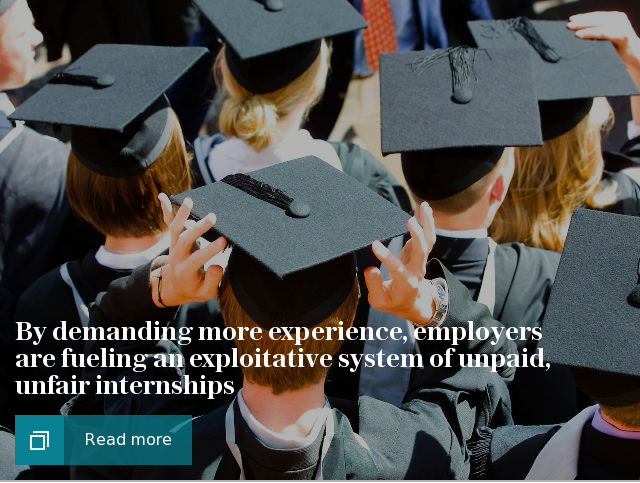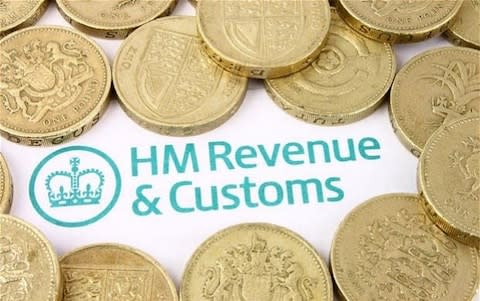The interns who fought back: 'I was reimbursed £4,600 for an unpaid internship I did four years ago'

Graduate debt is rising sharply. Wages are falling. And the proportion of graduates in “non-graduate” jobs is creeping towards one in two.
Internships – very often subsidised by parents who give their offspring cash or pay for accommodation – are now a standard route into the workplace. The number offered by major graduate employers has grown by 50pc since 2010.
And, says the Institute for Public Policy Research, almost half of those employers state that without that experience graduate applicants have little to no hope of securing an actual job.
But now there is evidence of a fightback.
Graduates are finding that it is possible to claim back thousands of pounds in unpaid wages for internships they carried out as long as six years ago – even if they signed a contract agreeing to work for free.
Chris Jarvis, for example, successfully claimed £4,600 from Sony, the multinational technology and entertainment giant, after working unpaid for three months.
Unpaid internships are illegal in almost all circumstances, breaching minimum wage laws, but many people don’t realise that there are several avenues to recompense. The IPPR estimates that as many as one in five of all internships are unpaid.

Liz Emerson, co-founder of the Intergenerational Foundation, said the internship system massively favoured those with wealthy families who live in London or the South East.
“With 500,000 new graduates coming into the labour market each year, their earning power is very much at the discretion of older employers, who were paid when they themselves entered the workforce,” she added.
“Young people need decent wages and good prospects if they are to be able to build up enough wealth to see them through their own old ages and not just pay the bill for today’s unaffordable 25-year long retirements.”
When are unpaid internships actually legal?
Frustrated about the exploitation of young workers, Asher Dresner and Jenny Imhoff set up Howbox to offer advice on workers’ rights. Mr Dresner said that, in almost all cases, an employer should pay you for an internship.
“The default position is that if you aren’t getting paid then that’s wrong. Some people think it’s OK for internships to be unpaid. It isn’t,” he said.
There are a handful of exceptions, but in most cases you will be entitled to at least the national minimum wage – currently £7.05 an hour for 21-24-year-olds and £7.50 above that. The rates will increase to £7.38 and £7.83 an hour in April.

If someone is under 16, working for a charity and getting paid expenses, or the worker is a student and the work is part of their course, unpaid work is legal.
Harder to judge is a little-known rule that means employers can also ask you to work for free if it “doesn’t control your work or benefit from it”. Mr Dresner said this situation was very rare, as in almost all cases the employer would exert some form of control over the work.
Can you claim back?
Workers can claim unpaid wages for internships they did in the past six years, even if they signed a contract.
Mr Dresner said: “A lot of people think if you signed a contract saying it’s unpaid, then it’s unpaid. That’s not how the law works – you can’t sign away your right to the minimum wage.”
Mr Jarvis, now 30, successfully claimed back thousands of pounds after working unpaid for three months in 2012. He spoke to Telegraph Money in depth about his experience for the first time, urging others to speak out even if they were concerned about future job prospects.
Mr Jarvis was excited on leaving university to learn that he had been offered an internship with Sony. He would be perfecting and rendering designs for a video game.
At the beginning of the internship Sony paid petrol money so he could travel from his home in Milton Keynes to the company’s offices in Cambridge. However, halfway through the internship the money abruptly stopped being paid and when Mr Jarvis attempted to raise a grievance he found he couldn’t as he was technically not an employee.

After contacting Citizens Advice and the charity Intern Aware, which put him in touch with a legal firm that agreed to represent him pro-bono, he realised he could claim back his unpaid wages.
Sony asked Mr Jarvis to sign a non-disclosure agreement but, after he held firm, the company eventually agreed in 2013 to pay him £4,600 shortly before an arranged date in court for an employment tribunal.
“I mainly pursued it initially because I couldn’t raise the grievance,” he said. “What would happen if I had an accident at work or something more serious?
“Then I wanted them to stop what they were doing. A lot of people were affected by it.” Mr Dresner pointed out that most people couldn’t afford to take a case to an employment tribunal but said there were other avenues available.
First, he advised, an employee should write to the company in question making the case that they should have been seen as an employee.

If this fails, workers can make a “pay and work rights complaint” with HM Revenue & Customs and, if it deems your claim to be valid, it will pursue the company on your behalf.
A spokesman for the taxman said: “Employing unpaid interns as workers to avoid paying the national minimum and living wage is against the law and exploitative. HMRC always takes action to ensure workers receive what they are entitled to.”
Consequences for businesses found to be in breach of the law can include fines for double the underpayment, public naming and criminal prosecution.
The HMRC spokesman said anyone in need of advice could seek free help from the Advisory, Conciliation & Arbitration Service (Acas).
Sony declined to comment.

 Yahoo Finance
Yahoo Finance 